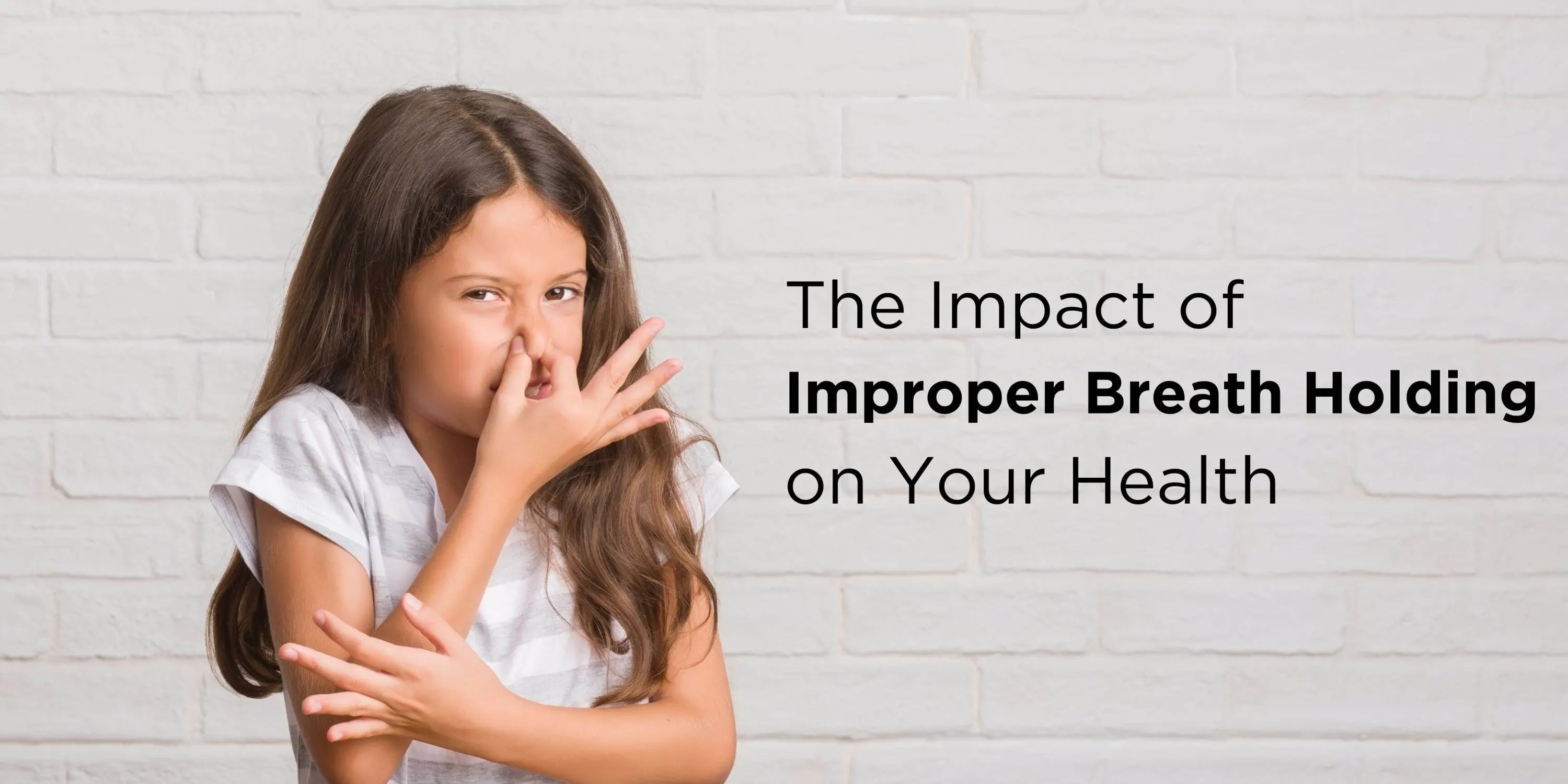
Improper Breath Holding: The Hidden Obstacle to Your Optimal Breathing Development
0 Comments
Improper Breath Holding: The Hidden Obstacle to Your Optimal Breathing Development?
MARCH 30,2023
The article discusses the practice of breath holding, its potential impact on health and well-being, and offers insights into the Optimal Breathing techniques to eliminate unintentional breath holding.

Table of Contents
Beautiful day, unfolding
Uncluttering the mind, unmolding
Even the bird song, no scolding
This moment of breath, no holding
Amana Aile Shebar on Breathe Holding
Do you hold your breath when you are trying to put a key in a door?
Do you hold your breath when getting up from a chair?
Do you hold your breath when trying to remember something?
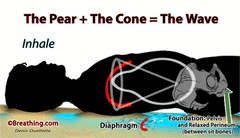
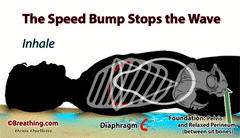
Breath-holding can have a function on occasion. But it can create breathing pattern disorder and a myriad of health challenge symptoms.
Seeing a vista that leaves you "breathless" is not what I am referring to. The breath-holding I am referring to can restrict optimal breathing development and make you tired, sick or dead way before your time.
The odds are that your parents were not breathing “properly” and they entrained their breathing into you.
Or browbeat, traumatized, or socialized you out of deep, EASY breathing. And if the child grows up to become a singer, or musical instrument player (even string instruments ) he or she may have to un-learn certain improper breathing habits and re-train their breathing mechanism if they want to excel in their chosen musical expression.
Unless they are specifically dealt with, just about everyone lives with sub-optimal breathing habits and breathing patterns. In fact, it has been shown that poor breathing habits are an underlying cause or worsening of most health problems.
Has someone told you that holding your breath for a certain count is beneficial: Like inhale 7; hold 4; exhale 8. Aka “box breathing.”
When breathing is withheld and/or high chest, breathing muscles are constantly being over-activated...the head is pulled forward, and the shoulders are hunched up and pulled forward...and a common observation is increased sway in the lower back, and the pelvis is tilted forward, simultaneously as the back is overextended, resulting in a misalignment of the entire body.
This may cause pain in the adjacent muscles of the back and pelvis. The possibility for free and deep effortless breathing is impossible. Breathing needs to be developed so that the correct "feel" is present at all times.
Many do not think they hold their breath but, on closer observation, discover that they do. The speed bump and fear are largely responsible for this. They block the breathing cycle and cause shallow or erratic breathing in many situations (stress included), but we are often unaware that this is occurring.
Attempts at effortful deep concentration or focus can cause it; uncertainty about a course of action often equals hesitancy in action and breathing; when attempting a new task, one may breath-hold until they have enough time to master it with ease, PLUS the mastery may never occur nor the good breathing return, IF it existed in the first place.
Many simple day-to-day actions can invite chronic breath-holding like bending to tie your shoe; fastening your bra; pulling open a stuck door; trimming your beard; bending to get something from the lower shelf of the refrigerator; reaching up to pick a piece of fruit from a tree branch, sitting at a computer for hours.
It is not breath holding per se that is the problem. It is excessive breath holding, including many so-called helpful breathing exercises. Breath holding, if excessive, can invite episodes of stopping breathing during sleep. Strangely enough, sometimes it helps with that but mostly not.
Children and Breath Holding
As children, we hold our breath to control the level of fear, anger or even love or excitement. This becomes chronic, and if nothing is done about it, it stays with many through their entire lives.
I sang solo for my entire student body at age 11 and then received several beatings and lost my ability to sing. For 40 years after that I yawned constantly, felt tightness in my chest, was often anxious, could not "hold on to/contain" high energy, was always in a hurry and could not catch my breath. I could not sing anymore either.
"Consider the impact of breath holding creating adrenaline as an aid to breathing and focusing on the task on hand. Also consider a posture change negating or turning off a usual postural compensation that is successfully being used to keep the throat opened by counterbalancing a slack tongue.
This will allow the closing of the throat (induced apnea) unless the compensation of increased adrenaline takes over. Could this action be a subconscious shift in compensation towards one utilizing more adrenaline? Can it lead to becoming an adrenaline junkie?"
Arthur Strauss, DDS, OSB
You do not have to be traumatized to lose your breathing. Even "normal" parenting can create chronic tension in a sensitive child.
As an infant or child, hearing NO!! when you are about to pull a pot of boiling water on top of your unsuspecting little head, or DON'T!! loudly as you totter toward a steep flight of steps or throw your food across the room for the tenth time stimulates the "startle reflex" that Thomas Hanna talked about. Repeated often enough and this sets in to cause your entire body to remain tightened up to foster potentially very irregular breathing patterns.
To get an example of how this affects your breathing, tighten up every muscle in your body. Now try to breathe in.
Can't do it very well, can you?
This is a severe example of what has happened. Do this tightening enough times and trust me, you will not breathe very well even when you try to relax.
Holding your breath when you perform stomach crunches may cause your blood pressure to spike higher than it normally would during resistance training. Does it help create a stroke? Could very well be IMO.
The eyes MUST have oxygen.
One can create eyesight issues by holding the breath long and often enough.
So Called "Healthy Breathing" Technique
A leading heavily white/gray-bearded medical doctor advocates breath-holding exercises using number counting. He is also about 40 pounds overweight and recommends foods that many are allergic to. Go figure. Breath-holding exercises may relax initially but over time restrict natural breathing.
Most of us got into emotional, energetic, and personal power trouble in the first place because of some sort of chronic breath holding. The breath-holding "hunger-for-air" illness model approach conditions the body to function with less air, and this can have temporary benefits by raising the CO2 levels, but I have not seen it to increase coordinated lung volume, breathing ease, and nervous system balance to any great degree over time.
I believe that if you breathe bigger, easier and in balance, the oxygen cost of breathing goes down. If you hold back your deepest easiest effortless breathing, if you inappropriately interrupt the natural ebb and flow of healthy respiration, the oxygen cost of breathing goes UP along with your stress levels. .
Like the good doctor's example above, the so-called yoga breathing count where you breathe in, hold the breath for several counts and breathe out and hold the several counts are in my opinion training us to hold our breathing even more than we do already.
Breath-holding can give some relief from hyperventilation but at the cost of tightening the stomach muscles, worsening the startle response and over time inviting shallow breathing. The Hale Clinic, founded by Prince Charles in the UK, used to teach Russian breath-holding techniques for asthma, and they no longer do that.
I often hear of yoga teachers and personal power experts advocating a pattern of say the 2:4:6:4 ratio; 2 inhale: 4 hold : 6 exhale: 4 hold; or 2:4:16:4 ratio; or whatever numbers they think are good or fit their opinion.
I totally disagree and caution everyone to not hold their breath nor try such difficult lengths of breathing extensions without proper guidance. Your diaphragm can support the voice best when it keeps moving.
Listen to people's voices.
See if they sound deep, full and resonant or thin, dry, raspy, or gasp on the inhale.
Note the figures below and the corresponding emotions. Chronic breath-holding often distorts the energy flow of healthy breathing.

I often see chronic migraines, seizures, anxiety, ADHD, Autism cases that to me are associated with various forms of breath-holding or holding back the natural ebb and flow of the life force.
Chronic breath-holding causes us to tighten our throats, causing or worsening vocal dysfunction as well as restricting the thyroid and thymus glands (thyroid = energy and metabolism: thymus = T cells). These techniques may cause tension. It is, to me a HUGE mistake for most people.
I often see its damaging results in some Pilates teachers and their students that attend my training for people with speech problems. Many teachers swear they are doing it right, that is until they open up their minds enough to let me work on them and show them where the deepest easiest breathing really is.
As long as you disregard the oxygen cost of breathing you overlook the fundamentals of enhanced reflexive natural breathing and its innate vitalizing and healing potential.
Using breath-holding techniques, distorts posture, tightens up the upper chest, diaphragm, throat, jaw, tongue, and face.
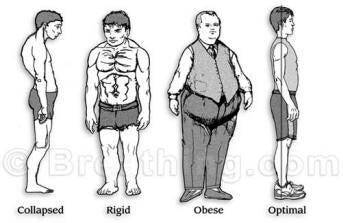
These tensions add to or create vision and voice problems and gasping on the inhale. Many become more inclined to mouth breathe and then snore into sleep problems due to the sudden and intense need for air that breath holding causes.
Breath-holding techniques to improve oxygen uptake or raise CO2 levels may cause chronic tensions and vocal restriction. This is why I sometimes use a special biofeedback instrument to monitor CO2 levels during breathing development training because I occasionally ask them to slow their breathing for a specified time and want to make certain this does not throw off their optimal CO2/O2 balance.
Most of us have excessive tension in our present day-to-day living. So with breath-holding to increase CO2, the tissues may get more oxygen but due to the tensions, the oxygen cost of breathing may skyrocket along with increased stress. This is often a delicate balance best monitored by a skilled health professional trained in Optimal Breathing Techniques.
Athletes and Breath Holding
Sports-related asthma is becoming epidemic. I understand that a few swimming coaches train students to not breathe. Your cells, particularly your muscle cells, undergo a chain of reactions known as cell respiration.
"Respiration" in this sense, does not directly mean breathing, but rather a breakdown of the body's main source of energy, glucose. (sugar.)
Your cells can perform two types of respiration: aerobic (meaning "with oxygen") and anaerobic (meaning "without oxygen"). Aerobic respiration is the usual and preferred way for your cells to produce energy, but when you hold or in any way make your breath less so, you are depriving your body of oxygen and your cells have to resort to anaerobic respiration.
When that happens, the energy-producing process is kicked over to an alternate pathway called lactic acid fermentation. That burning, sore sensation you feel right after vigorous activity?
That's a build-up of lactic acid -- it hurts.
To compare, you could say that aerobic respiration yields 40 ATP, adenosine triphosphate. This is the molecule your cells use for most of their energy. Lactic acid fermentation yields 2 ATP.
Fermentation will happen to some of your cells when you workout. But as I understand it, when you hold your breath, this lactic acid fermentation occurs in most of your oxygen-deprived cells, and it makes that burst of energy you want very short-lived -- not to mention potentially painful.
My Optimal Breathing Kit has been integrated into the Doctorate program for Advanced Athletic Training (DAT) at the University of Idaho.
"As the nation's first Advanced Doctor of Athletic Training (DAT), this program is designed to improve your clinical practice through advanced manual therapy techniques and analysis of patient outcomes in an applied research focus."
So, make sure your breathing is as big and easy as it can be. Then go have a great workout. We counsel to undo the tension and restriction from physical work(outs) with our DVD2.
There are several breathing-oriented weight training equipment guides outlined in the Secrets of Optimal Natural Breathing Manual included in the Optimal Breathing Development Mastery Kit.
"I saw the letter on breath holding that had been sent to you in this last newsletter. It appears that this person is suggesting doing something that I, and others I'm sure, before and after the early 50s had worked out as a way to extend time underwater on a free dive.
It could have killed me, as I don't doubt that it has killed many over the years. In my case I was lucky in that I passed out in an experiment on shore rather than while under-water. Decades later I learned that this suicidal practice was called 'hyperventilation' You go from little desire at all to breathe, to nothingness all in an instant.
This happens when, thinking you are getting rid of all the used air and limbering up your rib-cage and diaphragm to hold as much new good air as you can force in and repeating many times to replace the air used in limbering up, you are really setting your 'breathe in or pass out' signal flag far below normal level so that by the time your oxygen level is too low for consciousness, your all important CO2 has not built up high enough for you, with training, not to be able to ignore. "
I'm sending this to you in hopes that you will verify the dangers and add a warning to the last newsletter.
Blood Pressure
Holding your breath when you perform stomach crunches may cause your blood pressure to spike higher than it normally would during resistance training. In a study, people who voluntarily held their breath during abdominal exercises had higher peak blood pressure elevations compared to when they breathed during the exercises. Then there is the Valsalvas maneuver where the people hold their breath to force out a bowel movement and die on the toilet from a heart attack.
Email Apnea?
In the November 23, 2009, Huffington Post, well-known writer Linda Stone in her "Just Breathe: Building the case for Email Apnea" stated that "Dr. Margaret Chesney, at the National Institute of Health (NIH).
Research conducted by Chesney and NIH research scientist, Dr. David Anderson, demonstrated that chronic breath-holding contributes significantly to stress-related diseases. The body becomes acidic, the kidneys begin to reabsorb sodium, and as the oxygen (O2), carbon dioxide (CO2), and nitric oxide (NO) balance is undermined, our biochemistry is thrown off.
Email-induced Sleep Apnea
Breath-holding and hyperventilating disturb our body's balance of oxygen, CO2, and NO. Nitric oxide, not to be confused with the nitrous oxide used in dental offices, plays an important role in our health.
From a briefing document prepared for the Royal Society and Association of British Science Writers, Pearce Wright explains, "The immune system uses nitric oxide in fighting viral, bacterial and parasitic infections, and tumors.
Nitric oxide transmits messages between nerve cells and is associated with the processes of learning, memory, sleeping, feeling pain, and, probably, depression. It is a mediator in inflammation and rheumatism."
Eyesight and Breath Holding
"Don't hold your breath while using your eyes"
The eyes MUST have oxygen. One can turn oneself temporarily blind by holding the breath long enough. Breathe freely; not studied, controlled, or even thoughtful breathing, but easy breathing such as a dog enjoys when it throws itself on the floor to sleep. Breathing exercises can be very helpful but should send one towards better breathing.
Many do not.
In my eye-training studio, I once worked with a cataract case whose vision we had improved by our method to such an extent that I called in a doctor, who worked sympathetically with us, to examine the eyes with his powerful ophthalmoscope.
One eye the doctor found to be entirely cleared of cataract. The lens of the other eye was still a little too cloudy to see the retina - to get the red reflex. 'Take a long, very slow in breath' I said to the pupil.
The doctor exclaimed aloud that that single breath had temporarily cleared the last vestige of film in the eye, so that the retina could be seen readily. Each time the pupil remembered to breathe, the remaining shreds of sediment were dissipated. Each time he held his breath a little murk clouded the lens once more.
If deep breathing will do this for a seriously affected eye, one can realize how great the benefit to normal or nearly normal vision. "How to improve your sight" by Margaret Darst Corbett.
From Optimal Breathing School student Esther Van De Werf
Natural vision and natural breathing go hand in hand.
A lady whose breathing seemed very restricted came to me for vision improvement. She had been in a car accident and was still using crutches to walk with. Her upper body showed a lot of tension. I taught her how to improve her breathing before addressing her vision habits. After just a few minutes of helping her loosen up her breathing, she joyfully announced that she could already see an extra line on the eye-chart behind me.
As one of my vision teachers put it:
"The eyes must have oxygen. One can turn oneself temporarily blind by holding the breath long enough. Breathe often and freely, not studied, controlled, thoughtful breathing, but easy sigh breathing such as a dog enjoys when it throws itself on the floor to sleep."
That teacher once worked with a cataract case whose vision we had improved by the Bates method. An eye doctor afterwards examined this man's eyes with his ophthalmoscope and found one eye to be entirely cleared of cataract. The lens of the other eye was still a little too cloudy to see the retina – to get the red reflex. The student was instructed to take a long breath. The doctor exclaimed aloud that that single breath had temporarily cleared the last vestige of film in the eye, so that the retina could be seen readily. Each time the student remembered to breathe, the remaining shreds of sediment were dissipated. Each time he held his breath, a little murk clouded the lens once more. If deep breathing will do this for a seriously affected eye, one can realize how great the benefit to normal or nearly normal vision.
Dr. Bates himself also wrote that many patients with imperfect sight are benefited by breathing.
“At one time I experimented with a number of patients, first having them hold their breath and test their vision, which was usually lower when they did not breathe. They became able to demonstrate that holding their breath was a strain and caused imperfect sight, double vision, dizziness and fatigue, while the deep breathing at once gave them relief. A man aged sixty-five had imperfect sight for distance and was unable to read fine print without the aid of strong glasses. After practicing deep breathing in the manner described he became able at once to read diamond type quite perfectly, as close as six inches from the eyes. The benefit was temporary but by repetition the improvement became more permanent."
From Optimal Breathing School Faculty Member Donna Gross
About breath holding affecting the vision?
It seems to all come down to staying relaxed and comfortable. Clear vision needs constant movement to function correctly. There is a perpetual vibration that, in effect, causes the illusion that everything you are viewing is in a state of movement.
This oppositional movement of the world in front of your nose is essential to clarity. As soon as we hold still, the vision fails to remain clear, and the mind fails to recognize the input. That is why blinking and breathing, and brushing your visual field with your nose are the first steps to good vision.
When we hold our breath, we hold still. This affects the vision immediately. Also, less O2 exchange affects the vision immediately. The tension needed to hold the breath can also diminish clarity.
Happy eyes work effortlessly, and a generous, easy deep breath relaxes the eye muscles, leaving them free to vibrate effortlessly, follow your attention and interest, and support your amazing imagination. DG
Breath Holding and Self Harm
Question To the Panel: Is it possible to hold your breath long enough to harm your brain, harmed due to lack of oxygen (or other cause)? I ask because I like to snorkel rather than scuba dive, but I still appreciate diving down as far as I can and often push myself to the limit on depth and time length. So at what time (or ratio), if any, would I be hurting myself? : Benjamin H
Dear Benjamin, rather than holding your breath when snorkeling, how about exhaling, that is, with closed lips, blow bubbles very minimally for as long as you can while you are under. I would suggest that you come up for air if possible, before it feels uncomfortable.
I don't have hard data on how long you could go for, but certainly, you don't want to push it so far that you may become unconscious. We have all heard the CPR & Red Cross quotes that you can become anoxic - lose significant O2 supply to the brain within 3 min, but that is when you are holding your breath.
That is very different from developing prolonged exhalation,which can gradually increase with practice and is best done in your comfort zone. Mike White has many valuable suggestions on that on his website. Sincerely, Margaret Leong, M.A., P.T.
Mike adds. I have a nose breathing snorkle. Love it. See Tribord online.
Advice from a Reader
The issue is about conditioning to the body, if you dive a lot you tend not to feel uncomfortable but euphoric on rising to the surface. The most significant piece of advice for free diving is never do it alone, if one is doing short times the above advice is fine, from 10 – 20 seconds or so.
From the above question, it would seem he is trying to push the time limits and times. Free divers can hold for 5 mins on a dive, and the method outlined is not good for doing that if that is what he wishes to do.
The advice is my opinion and should be along the lines of;
Breath-holding is not advised, (due to potentially damaging health). Increased risk of a cerebral stroke, or cardiac incidents may be due to the blood pressure spikes during breath holding. A range of cognitive and motor disturbances post apnea including, language production disturbances (‘Mooglie’ – Canadian free dive team 2002), motor control problems (‘sambas’), shallow water blackouts, difficulty with concentration or keeping track of time, feeling “fuzzy in the head” and not being able to recall events immediately prior to the breath holding activity.
He should avoid not breathing in any way (even if that is by slowly breathing out and not breathing in), if he does choose to do it then it should be for short periods, such as 45-60 seconds but not more due to problems with shallow water blackout.
If he does wish to increase his underwater time, he should research freediving thoroughly and take a course if he chooses to, although you would not recommend it for the reasons that you outline on your site.
Freediving is a dangerous activity and can result in blackout and death if not done properly. lung squeezes
I would think that that strikes a good balance between the two opinions and will keep him safe in the water if he chooses to breath hold dive.
Eliminate chronic unintentional breath-holding. Remove the speed bump. Recover from constricting breath holding.
To go much deeper into breath holding, I highly recommend Breathology by Stig Severinsen. It is a wealth of information that guides one into state-of-the-art freediving techniques. Stig just set a new Guinness world record in December 2020 for the longest distance underwater in one breath; 202 meters.

Meet Mike White
Meet Michael Grant White, the Optimal Breathing Coach and get actionable insights on your breathing development, health and longevity
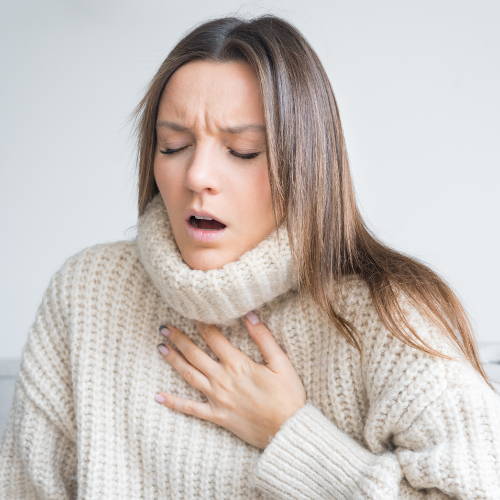
How Good is Your Breathing?
Want to know the future of your health and longevity?
Most Popular Articles

April 12,2021

Feb 10, 2022
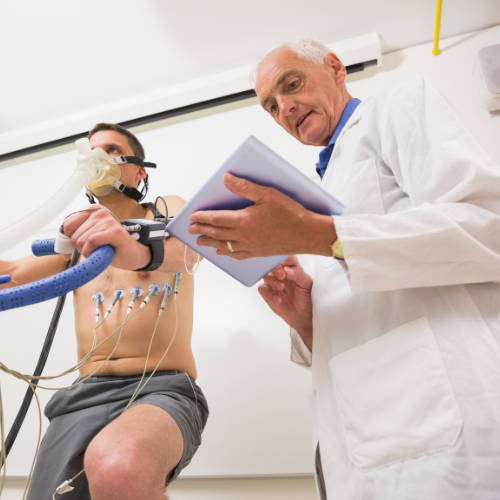
Attain satisfactory levels of exercise without aggravating existing heart.
Understand and explore EWOT - Exercise with Oxygen Therapy.
Interviews with Denis
Breathing & Oxygen Articles
- Breathing
- Oxygen
- Mold Could Be in Your Home Right Now. Are You at Risk?
- Beat Work Stress the Right Way
- Bad Breathing Causes Asthma- Here's What to Do!
- Optimal Breathing, Autism & Brain Development
- Why Breathe Better? Bad Breathing Makes You sick or Sicker. Learn To Breathe Better Now
- Cure your Breathing Problems with Breathing Exercises
Meet & Work With Our Practitioners
Get personal help to improve your health
and vitality.
Get expert coaching and guidance from our Optimal Breathing experts.
Whether you are looking to have an Integral Breathwork expert, Voice Coach
or someone who specializes in anxiety or depression, look no further.
Overview of the Turbo Oxygen System
EWOT ON STEROIDS Based On Oxygen Multistep Therapy aka OMT
Accelerating wellness, physical endurance, mental clarity and more. People today are more health conscious than ever. Men and women have always used the gym as a social venue as well as a fitness venue, but many of these people that used to belong to gyms now find it easier and more convenient and lately even gas saving to work out at home with store bought equipment.
You know the feeling when you actually wake up early to workout?





